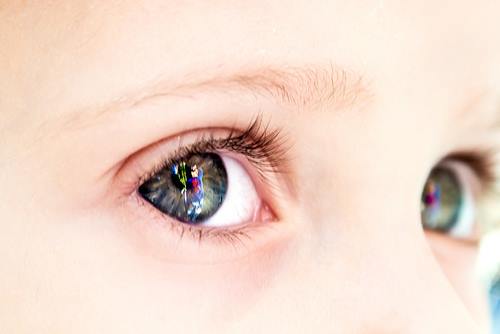
Perceptual constancy is what makes invariability possible in a constantly changing world. It is what makes human perceptual system resistant to sometimes annoying variations of physical reality, such as lighting changes or perceptual physical conditions (ocular globe mobility, turning our heads, etc.). It is our brain what makes us recognize something as invariable even though this something may be subject to physical and lighting variations. Thus, even though we see a person far away, we do not believe that that human being is tiny, or even though we never see a round table from a high-angle point of view, we will never consider it as elliptical, but spherical. We will also consider that a colour never changes although depending on the light it can present variations.
This ability isn’t nonetheless inherent, as we develop it few months after being born. This means that when we are born, we are able to determine such variations and we gradually learn to ignore them in order to recognise something as invariable, even when it actually experiments changing conditions.
At this point, we become incapable of detecting differences that a 4-month old baby could easily detect. This means our brain ignores some variations and detects others in a different way than a baby’s brain does. The intensity of image pixels, for example, is something a baby could easily distinguish, while for the rest of human beings, it is impossible to detect. However, adults can clearly see differences, such as opacity or sheen, that a baby would detect.
In a recent study published last December in Current Biology, a psychologist’s team from Chuo University in Japan lead by Jiale Yang carried out a study with 42 babies aged between 3 and 8 months in order to determine which differences they distinguished from pairs of images representing real objects in 3D.
The fact that babies kept their eyes longer in unequal objects was detected in previous research. Thus, specialists were able to tell, based in which image babies looked at for longer times, if babies thought one image was similar or different from the previous one. This means, if the baby spent more time looking at the first picture than looking at the second one, psychologists determined the baby thought the second image was boring because it was just like the first one, while if babies spent the same amount of time looking at both images, this meant the second image surprised and interested them just as much as the first one.
The results showed that babies between 3-4 months of age had the surprising ability to detect differences caused by lighting and perception that are not evident for grown-ups. It is not until around 5 months of age when they lose this ability, and around 7 or 8 months old they develop surface differentiation capabilities (opacity, sheen…). The ability to differentiate surface properties is not the only perceptual area in which humans leave behind reality to accept an illusion. We also lose sensitivity when it comes to objective differences and replace it for the ability to detect subjective similitudes, which allows us to be more involved in our environment, but distance ourselves from strictly physical reality.
Contact us or request an appointment with our medical team.